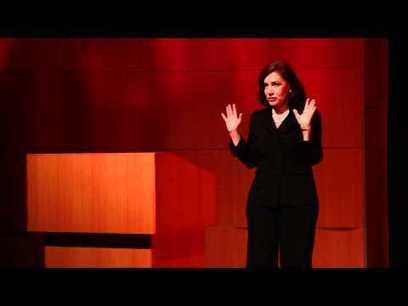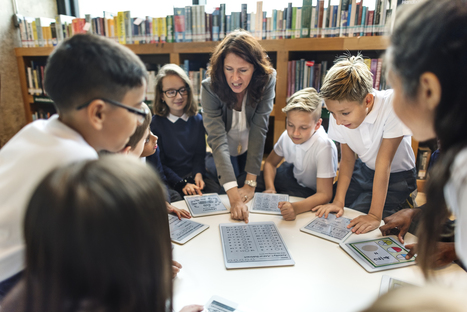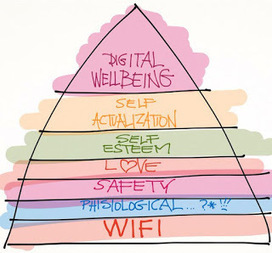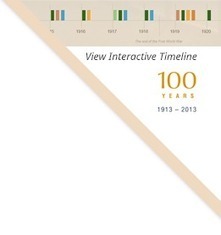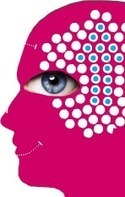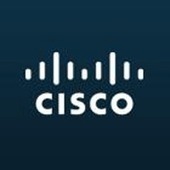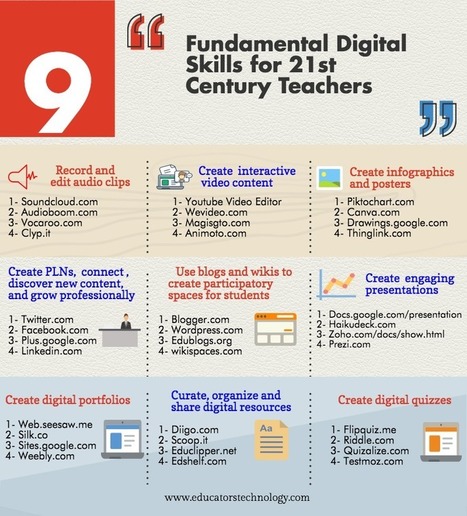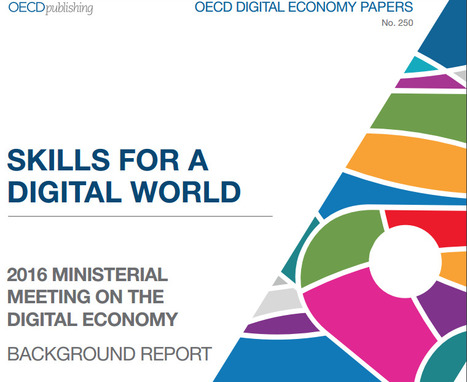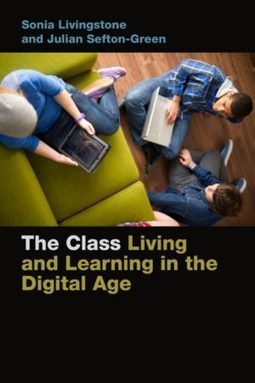There is a belief that younger people are fully engaged with the digital world. But I am currently leading a project exploring people’s knowledge and use of online data, and the preliminary findings from our research has found that data literacy is not uniformly high among younger people, as is often assumed. Instead, some young people have very low levels of data literacy.
Get Started for FREE
Sign up with Facebook Sign up with X
I don't have a Facebook or a X account

 Your new post is loading... Your new post is loading...
 Your new post is loading... Your new post is loading...
Current selected tag: 'digital world'. Clear
In this video, Sherry Turkle talks about how as a society today, we tend to rely heavily on and expect more from technology rather than each other. She discusses how people's use of technology has changed from the previous generation to the present one, which is currently growing up with technology. After interviewing several people, she was able to conclude that people were so focused on their digital lives that they were becoming less aware of their real lives. For example, she talks about how people would often text at inappropriate times, such as while driving or attending a funeral. I agreed with Turkle when she mentioned how people often depict their social media profile in a positive light, in order to make themselves look better, even though that is not how their life is in reality. I highly recommend watching this video, as it will make you more aware of what you put out there in the digital world, as well as reminding you that your real lives also matter.
Learning to change your teaching practice in today’s digital-first world is a bit like learning a foreign language, to hear ed-tech vet Ann McMullan tell it. “You don’t speak it fluently on the first day. But you pick up one word, two words, three words, and the more you engage and the more you use it, the more natural it begins to feel.”
What is 'Digital Wellbeing'? This is the first of a few posts on digital wellbeing. The term is one I coined - or at least brought into the education space - while I was working on a new Digital Capabillities framework for UK HE and FE (funded by Jisc) in 2015. Here, from the framework, is my definition.
Ever since I read George Dvorsky's 20 crucial terms every 21st Century Futurist should know I have been thinking about one particular term he featured. His mention of the Substrate-Autonomous Person got me thinking about what possible applications should could have for education in the future.
We live in the digital age – but a fifth of the UK population do not have access to the internet. How can we help everyone to get online and enjoy the benefits that connectivity can offer? Click on the image to download The Carnegie UK Trust’s 7 Digital Participation Tests and 6 Case Studies of successful local projects that are tackling digital exclusion in new and innovative ways.
[You can download this report.]
63 Things Every Student Should Know In A Digital World
It could be argued—and probably argued well—that what a student fundamentally needs to know today isn’t much different than what Tom Sawyer or Joan of Arc or Alexander the Great needed to know. Communication. Resourcefulness. Creativity. Persistence. How true this turns out to be depends on how macro you want to get. If we want to discuss our needs as humans in broad, sweeping themes, then food, water, shelter, connectivity, safety, and some degree of self-esteem pretty much cover it.
The IFLA Trend Report acknowledges access to information as having a profound influence on future developments in the information economy. An ever-expanding digital universe will bring a higher value to information literacy skills like basic reading and competence with digital tools. People who lack these skills will face barriers to inclusion in a growing range of areas. The nature of new online business models will heavily influence who can successfully own, profit from, share or access information in the future.
It has long been known that a combination of both formal and informal learning is an effective way of turning theory (explicit knowledge) into practice (tacit (Learning Hubs: Where Learning Takes Place in a Digital World |
Free resource of educational web tools, 21st century skills, tips and tutorials on how teachers and students integrate technology into education Via Dean J. Fusto
This report provides new evidence on the effects of digital technologies on the demand for skills and discusses key policies for skills development adapted to the digital economy. Workers across an increasing range of occupations need generic and/or advanced ICT skills to use such technologies effectively. More fundamentally, the diffusion of digital technologies is changing how work is done, raising demand for complementary skills such as information processing, self-direction, problem solving and communication. This report discusses measures that can help to ensure that the diffusion of digital technologies is accompanied by the development of the skills needed for their effective use, an increase in the responsiveness of national skills development systems to changes in skills demand and of new learning opportunities created by digital technologies.
Based upon fieldwork at an ordinary London school, The Class examines young people’s experiences of growing up and learning in a digital world. In this original and engaging study, Sonia Livingstone and Julian Sefton-Green explore youth values, teenagers’ perspectives on their futures, and their tactics for facing the opportunities and challenges that lie ahead.
The issue
Intellectual property law provides tools that can enhance an institution’s ability to capitalise on the value of its expertise and help it exploit innovative opportunities. Having an appreciation of the significance of intellectual property law for further and higher education is essential.
Metaliteracy is envisioned as a comprehensive model for information literacy to advance critical thinking and reflection in social media, open learning settings, and online communities. At this critical time in higher education, an expansion of the original definition of information literacy is required to include the interactive production and sharing of original and repurposed digital materials. Metaliteracy provides an overarching and unifying framework that builds on the core information literacy competencies while addressing the revolutionary changes in how learners communicate, create, and distribute information in participatory environments.
[Article available free as PDF]
Online technology has changed the way individuals, teams and organisations engage with each other for teaching, learning and research.
My thoughts on where I see Teaching and the Digital World in 5 years, for the University of Sheffield's Learning and Teaching Conference 2013
A survey of Advanced Placement and National Writing Project teachers finds that teens’ research habits are changing in the digital age
Key points:-
Virtually all (99%) AP and NWP teachers in this study agree with the notion that “the internet enables students to access a wider range of resources than would otherwise be available,” and 65% agree that “the internet makes today’s students more self-sufficient researchers.”
At the same time, 76% of teachers surveyed “strongly agree” with the assertion that internet search engines have conditioned students to expect to be able to find information quickly and easily.
Large majorities also agree with the notion that the amount of information available online today is overwhelming to most students (83%) and that today’s digital technologies discourage students from using a wide range of sources when conducting research (71%).
Fewer teachers, but still a majority of this sample (60%), agree with the assertion that today’s technologies make it harder for students to find credible sources of information.
Given these concerns, it is not surprising that 47% of these teachers strongly agree and another 44% somewhat believe that courses and content focusing on digital literacy should be incorporated into every school’s curriculum. |





